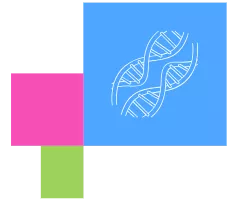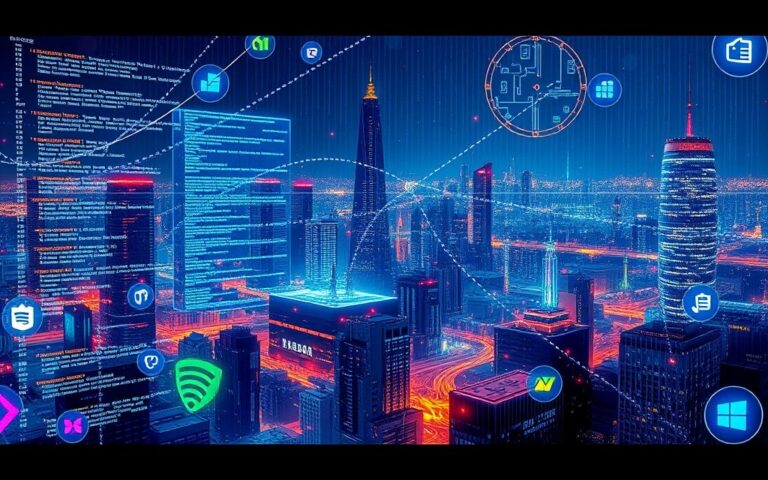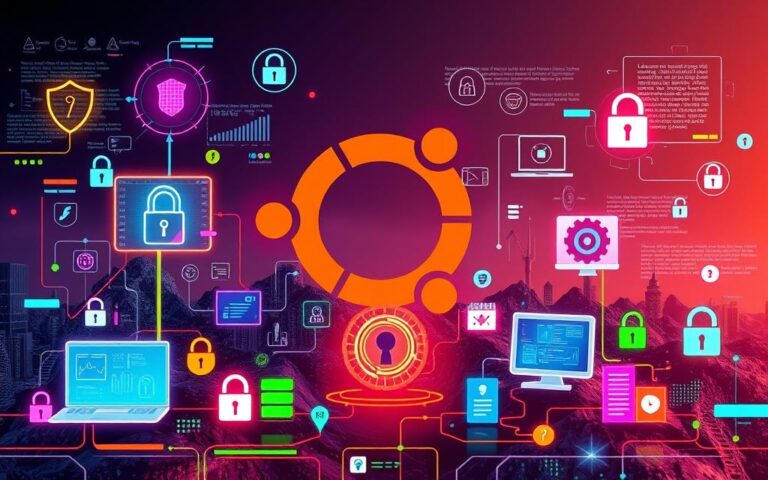Exploring Free Open Source Quantum Computing Systems
Technology is quickly changing, and free open source quantum computing systems are changing how we solve big problems. These systems use quantum mechanics principles to tackle tasks too complex for ordinary computers. They promise advancements in fields like chemistry, physics, and cybersecurity. Accessible quantum computing resources let both beginners and experts explore quantum programming languages and simulators.
There are over 90 free and open-source quantum computing systems available today. The focus on community collaboration is key in quantum computing. By working together, learners improve their skills and help grow a world that values new ideas and exploration. Let’s discover the vast opportunities in quantum computing together.
The Emergence of Quantum Computing
Quantum computing is a big leap forward in how we think about computers. It uses the rules of quantum mechanics principles to work with data. These are the same rules that govern the tiny particles in the universe.
This new kind of computing could change many fields. It’s really good at solving hard problems and doing simulations that regular computers can’t handle.
Understanding the Principles of Quantum Mechanics
Superposition and entanglement are key ideas in quantum computing. Thanks to superposition, quantum bits, or qubits, can be in more than one state at once. This gives them a lot of power to process information.
Entanglement lets qubits instantly affect each other, no matter how far apart they are. This creates a web of data that can work together in amazing ways. These quantum breakthroughs let quantum computers tackle huge amounts of information and solve problems that are too tough for normal computers.
The Role of Quantum Computing in Modern Science
Quantum computing is getting more important in science every day. It’s great for making high-level simulations that push forward advancements in science.
This is really helpful in fields like making new medicines, studying materials, and keeping data safe. With quantum mechanics, scientists can look into complex systems in ways that used to be impossible. This could lead to big changes in how we understand the world.
Key Features of Free Open Source Quantum Computing Systems
Free open source quantum computing systems are a big step towards making quantum technology open to everyone. These systems show the power of community-driven quantum resources. They create a place where people can come together to innovate. By focusing on open source collaboration, they let people from different backgrounds work together. They can improve and share their knowledge about quantum computing.
Accessibility and Community Collaboration
Being able to access these systems easily is fundamental. People around the world can use quantum learning platforms, no matter how much they know already. Tools like Cirq and Qiskit offer learning resources and welcome everyone’s contributions. This enriches what we all know. Such collaboration helps people learn to program quantum computers. They use flexible quantum software that gets better with users’ feedback and tech advances.
Customisability of Quantum Software Solutions
The customisability of these systems is impressive. They allow users to make software that meets their unique needs. You can create custom quantum algorithms for different uses. Having lots of frameworks to use improves how adaptable your programming can be. This opens the door for creative answers in many fields. Being able to try new things in solving quantum problems is key. It leads to amazing discoveries.
| Quantum Tool | Functionality | Supported Hardware | Institution |
|---|---|---|---|
| Cirq | Quantum circuit simulation | IBM Quantum Experience | |
| ProjectQ | Algorithm design | Photonic quantum computers | ETH Zurich |
| PennyLane | Quantum machine learning | Custom hardware | University of Toronto |
| Q-CTRL | Error mitigation | IBM Quantum Experience | Q-CTRL |
| Tequila | Quantum circuit simulation | Custom hardware | University of California |

Exploring Free Open Source Quantum Computing Systems
Finding good resources is key for learning about quantum computing. Many free open source tools offer great chances for beginners and experts to improve their knowledge and skills. Here are some standout platforms with unique features.
10 Notable Open Source Resources for Quantum Computing
- IBM Quantum Experience: A platform offering direct interaction with actual quantum computers for a practical quantum computing experience.
- Microsoft Quantum Development Kit: This resource features tools essential for developing quantum algorithms and applications.
- Qiskit: Provides comprehensive tutorials and implementations like Grover’s Search Algorithm, showcasing effective quantum programming.
- Quantum Country: This platform offers a structured learning approach, breaking down complex quantum principles into more digestible parts.
- EdX: Hosts various educational platforms that cover quantum computing principles and technologies.
- Quantum Katas: Interactive resources designed to enhance learning through practical coding exercises.
- Quantum Computing Playground: An engaging system that allows users to experiment with quantum states and operations.
- Quantum Hardware course: A free introductory course that gives foundational knowledge and hands-on experiences.
- Qiskit Pulse: Enables sending microwave pulses to quantum hardware and allows customisation of quantum gate interactions.
- Shor’s Algorithm Tutorials: These provide insights into factoring large numbers efficiently using quantum machines.
Hands-on Learning through Free Platforms
Using interactive resources makes learning hands-on. Platforms like the Quantum Computing Playground let users try out and tweak settings as they like. They can even connect to GitHub for updates through Google Cloud.
Quantum Country uses cognitive science to make learning better. It helps make tricky topics like quantum mechanics simpler. The platform covers a wide range of topics, from basic to advanced things like quantum teleportation. For those curious about merging machine learning with quantum technology, there are many chances to learn and try new things.
Popular Open Source Quantum Programming Languages
The world of quantum programming languages has grown a lot. These languages let developers and researchers build and use quantum circuits. These are key for quantum computing. We’ve got Qiskit, Cirq, Q#, and Strawberry Fields, all offering different features for quantum projects.
Qiskit: Framework for Quantum Computing
IBM’s Qiskit is very popular in quantum programming. It’s used in schools and businesses. It helps design and run quantum circuits. Qiskit is open-source, so it’s easy to use. You can run quantum circuits on real devices online. This makes it great for mixing classical and quantum computing.
Cirq: Creating Noisy Intermediate Scale Quantum Circuits
Google’s Cirq is for Noisy Intermediate Scale Quantum (NISQ) devices. It’s simple to use and helps handle noise in these devices well. Cirq lets you run experiments on real quantum hardware via Google’s Quantum Cloud and more.
Projects like Q# and Strawberry Fields
Microsoft’s Q# offers many quantum algorithms and libraries. It works well with Visual Studio. This makes creating complex quantum algorithms easier. Strawberry Fields by Xanadu is for photonic quantum computing. It’s good for quantum machine learning. These show the wide range of quantum programming languages out there.
| Quantum Programming Language | Developer | Key Features |
|---|---|---|
| Qiskit | IBM | Open-source toolkit for quantum circuit design and execution on real devices |
| Cirq | Optimised for NISQ devices, inherent noise management | |
| Q# | Microsoft | Visual Studio integration, extensive quantum libraries and algorithms |
| Strawberry Fields | Xanadu | Focus on photonic quantum computing with a library for machine learning |
| ProjectQ | Open-source community | Modular design compatible with various quantum computing tools |
| PyQuil | Rigetti Computing | Python-based design for quantum circuits, cloud execution |
As quantum computing grows, knowing these languages is key. Online learning resources are vital. They help anyone get into this exciting field. Check out free training platforms to learn more about these languages.
Innovative Tools and Simulators in Quantum Computing
The world of quantum computing is always changing. It brings new tools and simulators for all levels. These resources make learning about quantum algorithms fun and encourage quantum experimentation. They create a great learning space and build community support in quantum computing. This supports future breakthroughs.
Using Quantum Katas for Skill Development
Quantum Katas combines games with quantum programming exercises. It challenges users to improve their skills and learn more about quantum concepts. People work together to solve problems. This leads to a great exchange of knowledge in quantum resources. It’s a fun way to understand tricky ideas.
A Look at Quantum Computing Playgrounds
Platforms such as the IBM Quantum Experience and CAS-Alibaba Quantum Computing Laboratory offer interactive quantum simulators. They let users try out simulations and real quantum hardware. These playgrounds offer lots of educational tools for quantum computing. They make it easy for everyone, no matter their experience, to experiment fearlessly. Their tutorials and simple designs encourage users to explore.
The Importance of Community Support in Development
A strong quantum computing community is key to innovation. It supports teamwork, where people share ideas and solve problems together. Working together helps push the limits of quantum technology. This teamwork is vital in making the most of these technologies. It keeps the community support in quantum computing active and meaningful.

Conclusion
The journey into free open source quantum computing is truly exciting. It promises a bright future in quantum computing. Open source quantum systems like IBM’s Qiskit and Xanadu’s Strawberry Fields help push the limits of computing. They make high-level tools available and encourage a community of learners and innovators.
When more people put effort into open-source projects, the power of quantum technology grows massively. With the Open Source Initiative (OSI) approving over 60 licenses, there’s a wide range of projects. From Pyquil for controlling quantum devices to TensorFlow Quantum for machine learning, they tackle problems too big for traditional computers. This shows the real potential of quantum computing.
Looking forward, support for open source quantum systems will likely lead to big advances. Experts are working on fixing errors and enhancing cloud services to tackle issues with qubit numbers and complex software. We are just starting to understand the possibilities of the quantum world, and they’re incredibly promising.
FAQ
What are free open source quantum computing systems?
Free open source quantum computing systems let everyone work together with quantum tech. They make it easy for anyone to help out, learn, and share in a group. This speeds up the growth of quantum science and tech.
How do quantum mechanics principles like superposition and entanglement influence quantum computing?
Quantum computing uses key ideas from quantum mechanics, like superposition and entanglement. Superposition lets quantum bits be in many states at once. Entanglement helps quantum bits share data instantly, even far apart. This allows solving of tough problems that traditional computers can’t handle.
What resources are available for learning about quantum computing?
There are many tools for learning about quantum computing. This includes the IBM Quantum Experience and the Microsoft Quantum Development Kit. Also, educational resources like the Qiskit Textbook and Edx are available. They offer both hands-on and theoretical learning for different levels of knowledge.
What is the importance of community collaboration in quantum computing?
Working together in a community helps people share ideas and solve problems in quantum computing. This teamwork speeds up new discoveries. It also makes quantum computing more open to everyone interested.
Can you recommend some popular open source quantum programming languages?
Some key quantum programming languages are Qiskit, Cirq, and Q# by Microsoft. Qiskit is great for making quantum circuits. Cirq is aimed at noisy quantum devices. Q# works well with Visual Studio for quantum coding. Each language has its own special features for developers.
What are Quantum Katas and how do they assist learning?
Quantum Katas are fun, interactive exercises that improve quantum computing skills. They challenge users with problems to solve, helping them understand quantum algorithms better. It’s also a way for learners to work together.
How do quantum computing playgrounds enhance practical skills?
Quantum computing playgrounds offer easy-to-use tools for experimenting with quantum circuits. These places turn what you know into skills you can use, making it easier to create your own quantum algorithms.
What role does community support play in the development of quantum computing?
Community support is crucial in advancing quantum computing. It encourages sharing knowledge and working on projects together. This strong community helps everyone understand quantum better, making progress faster and more efficient.











